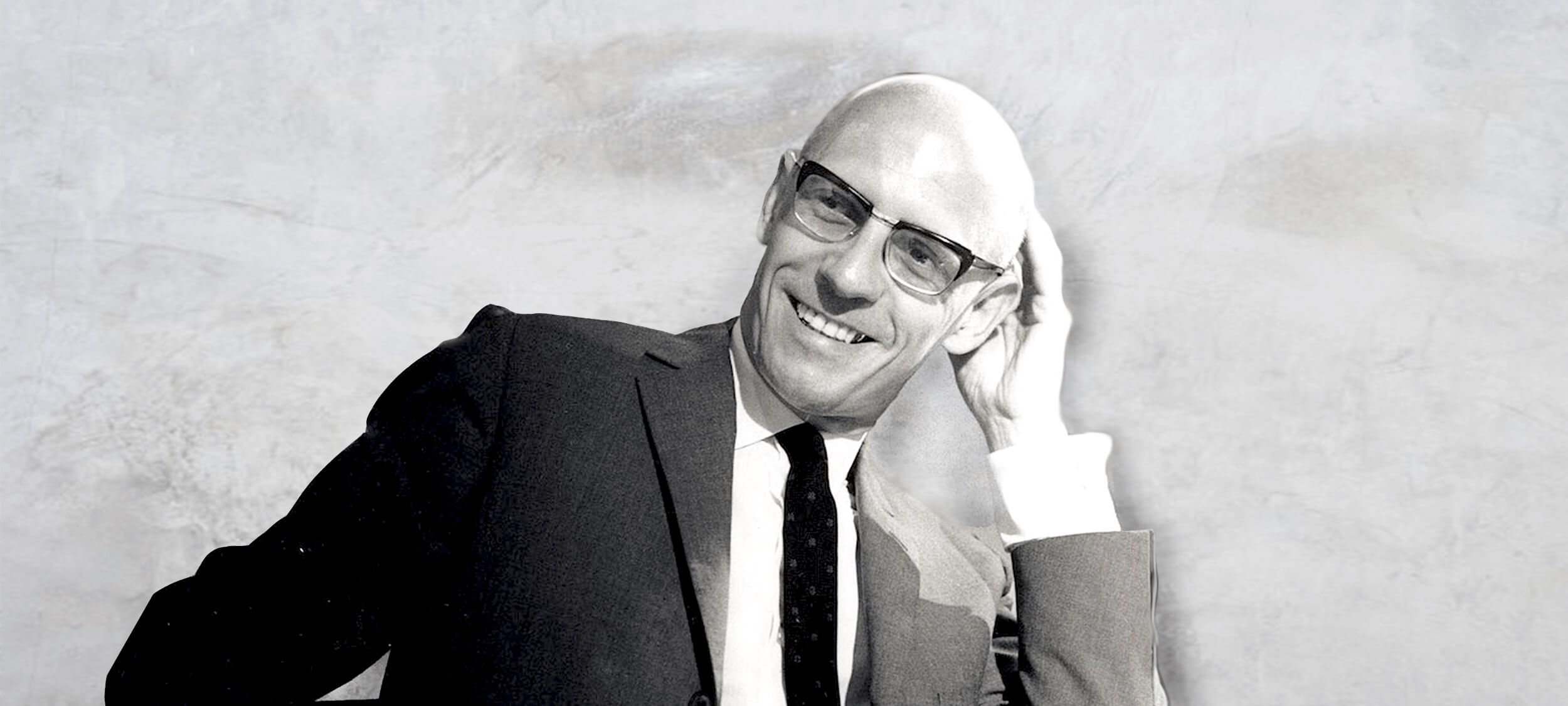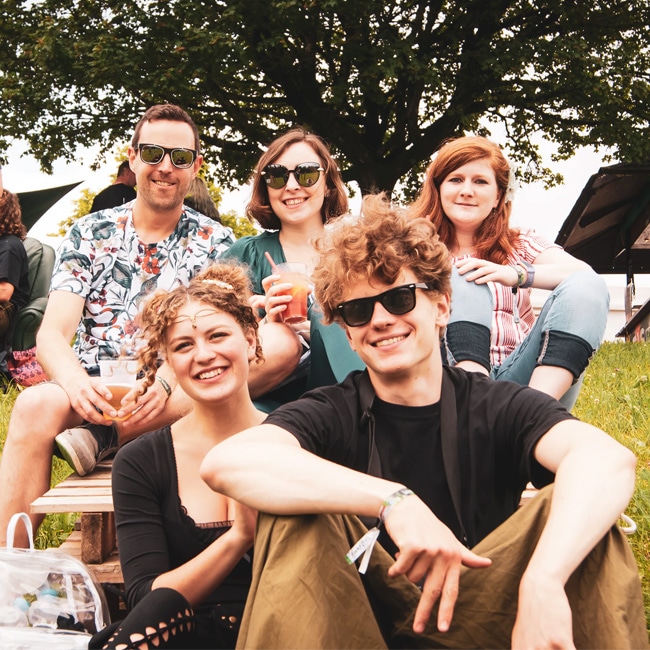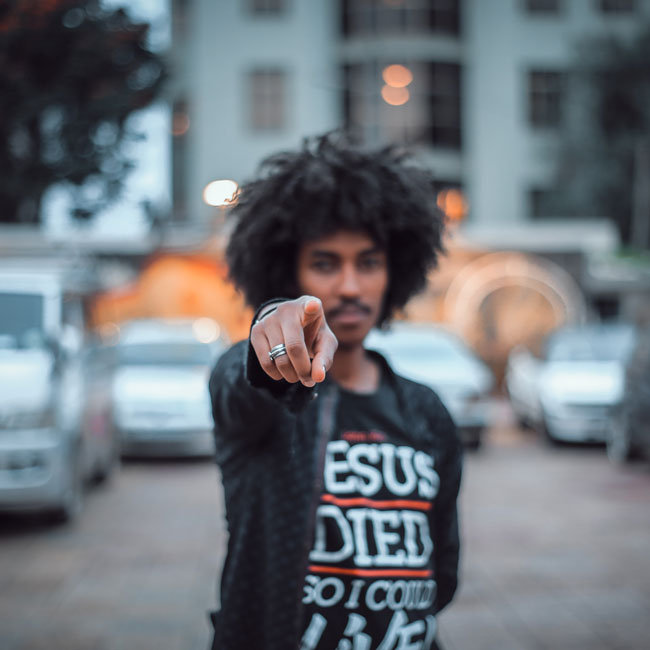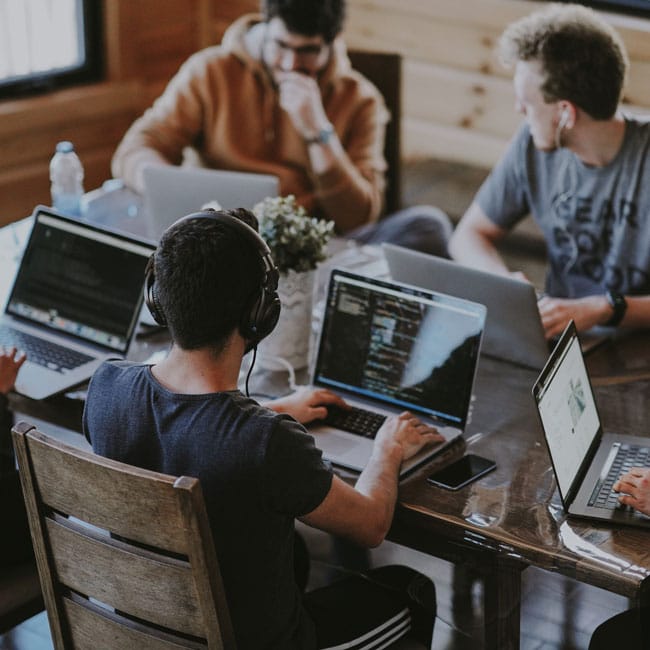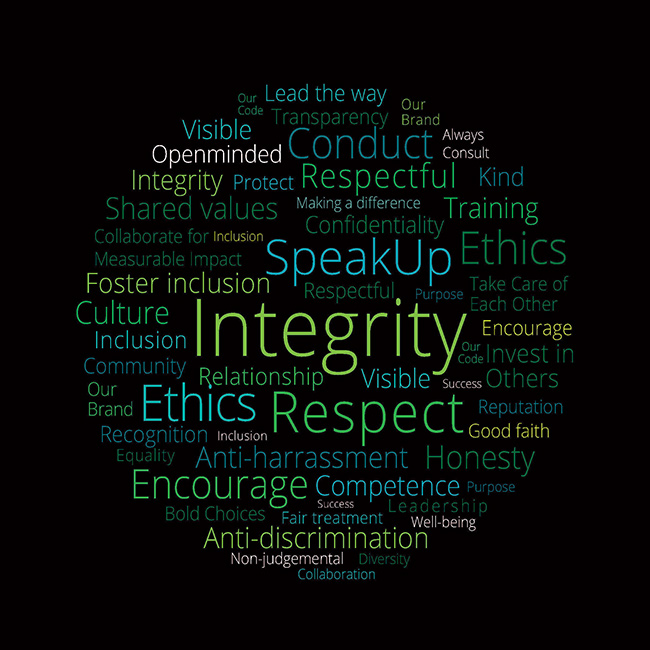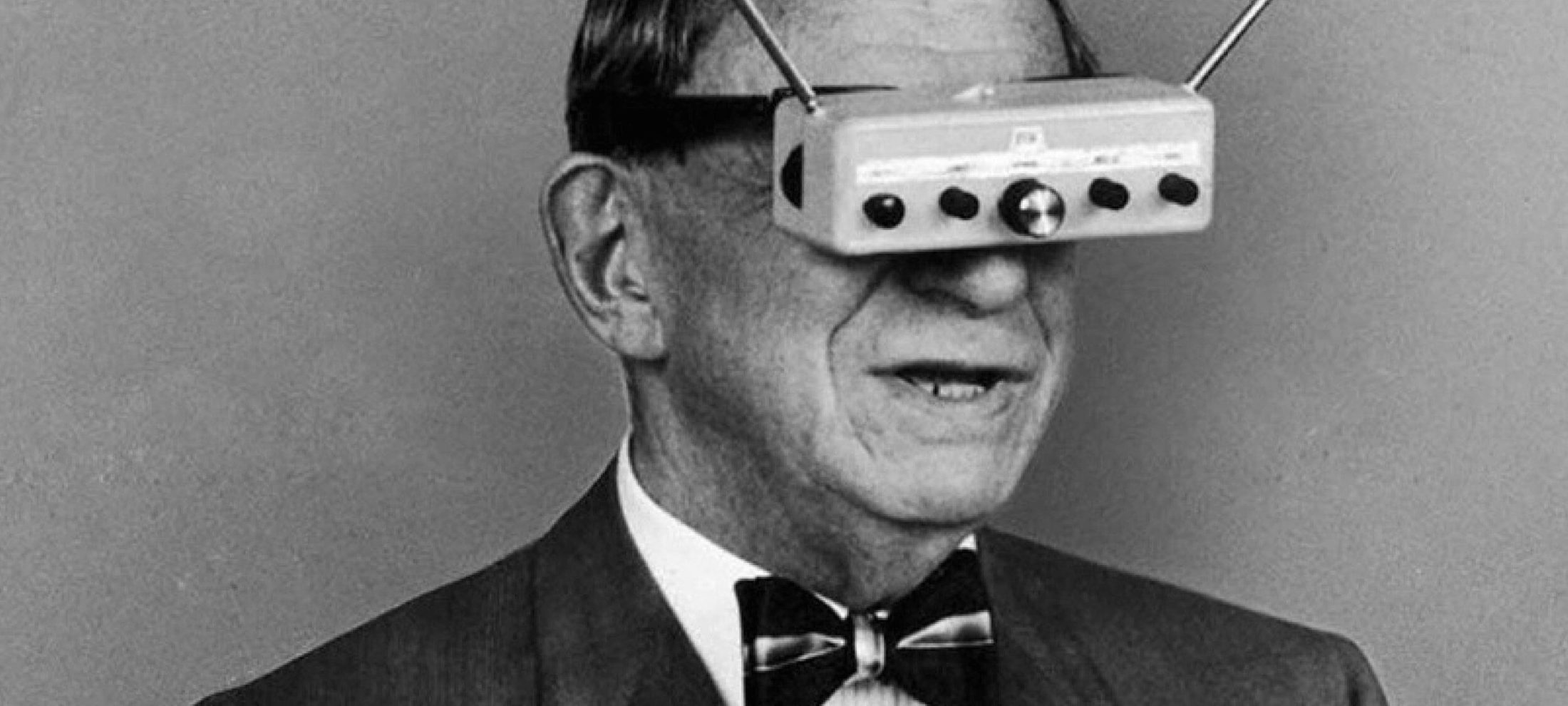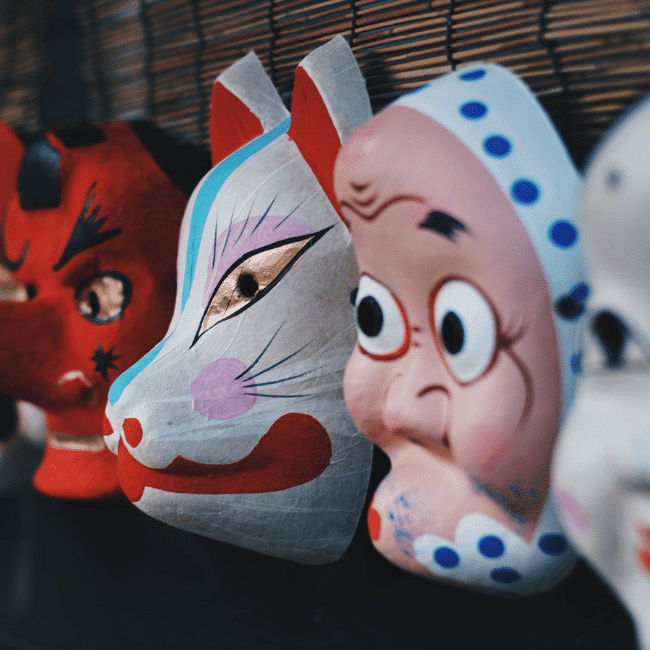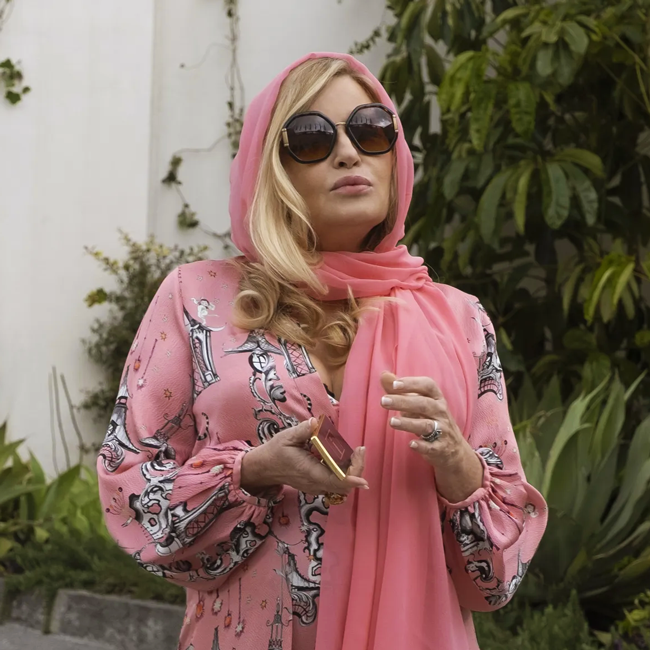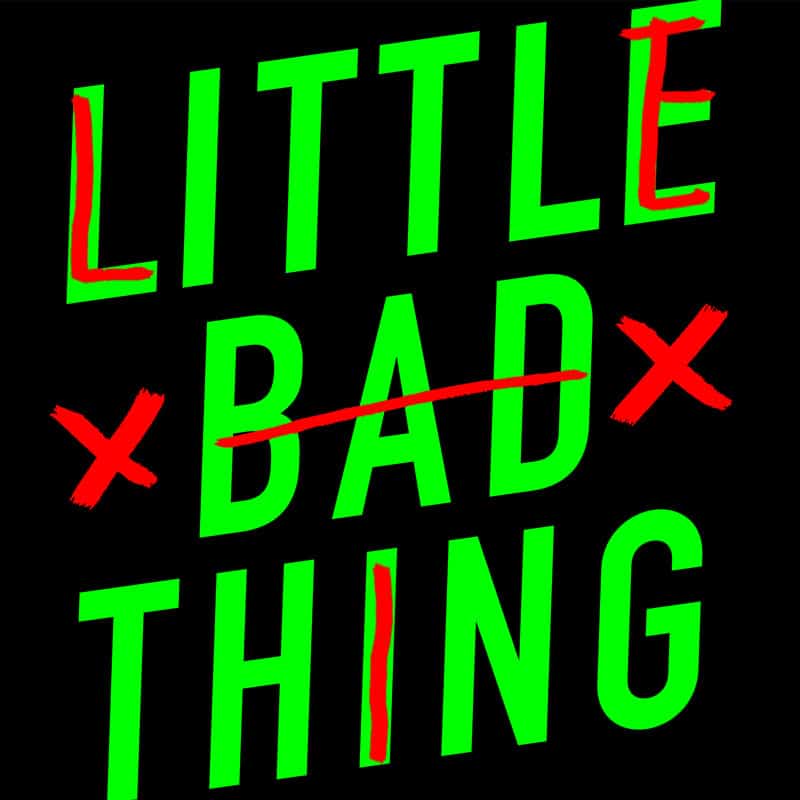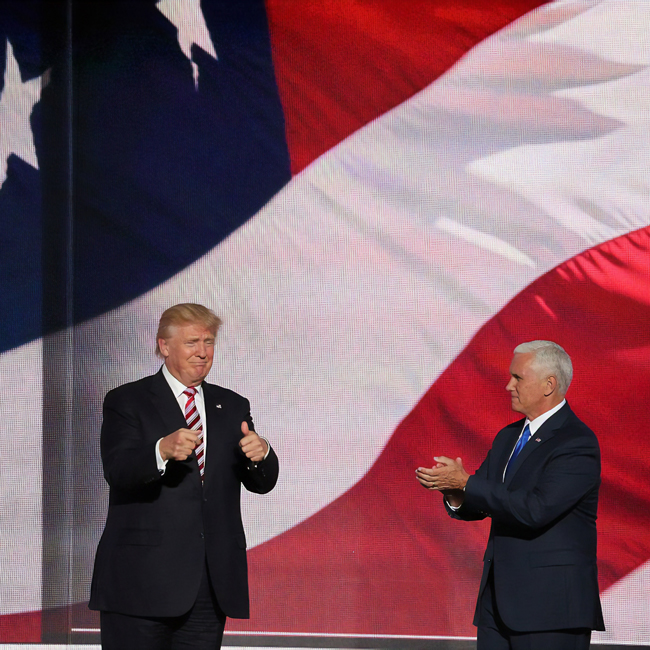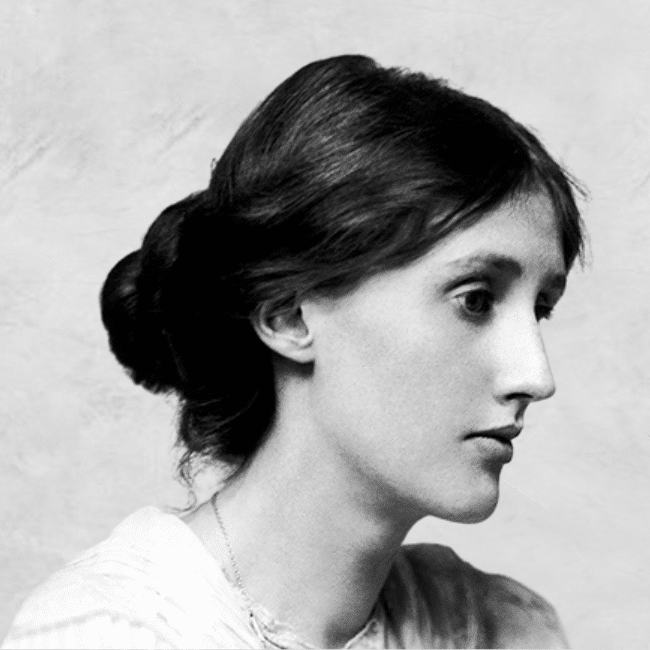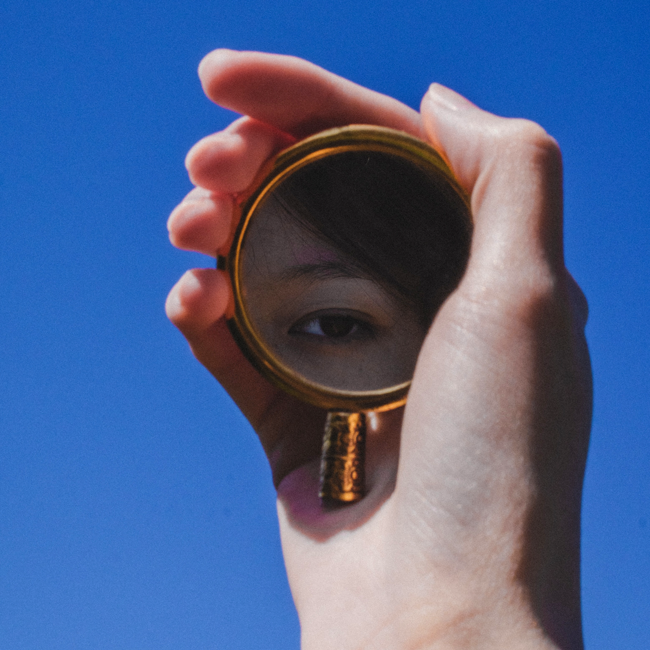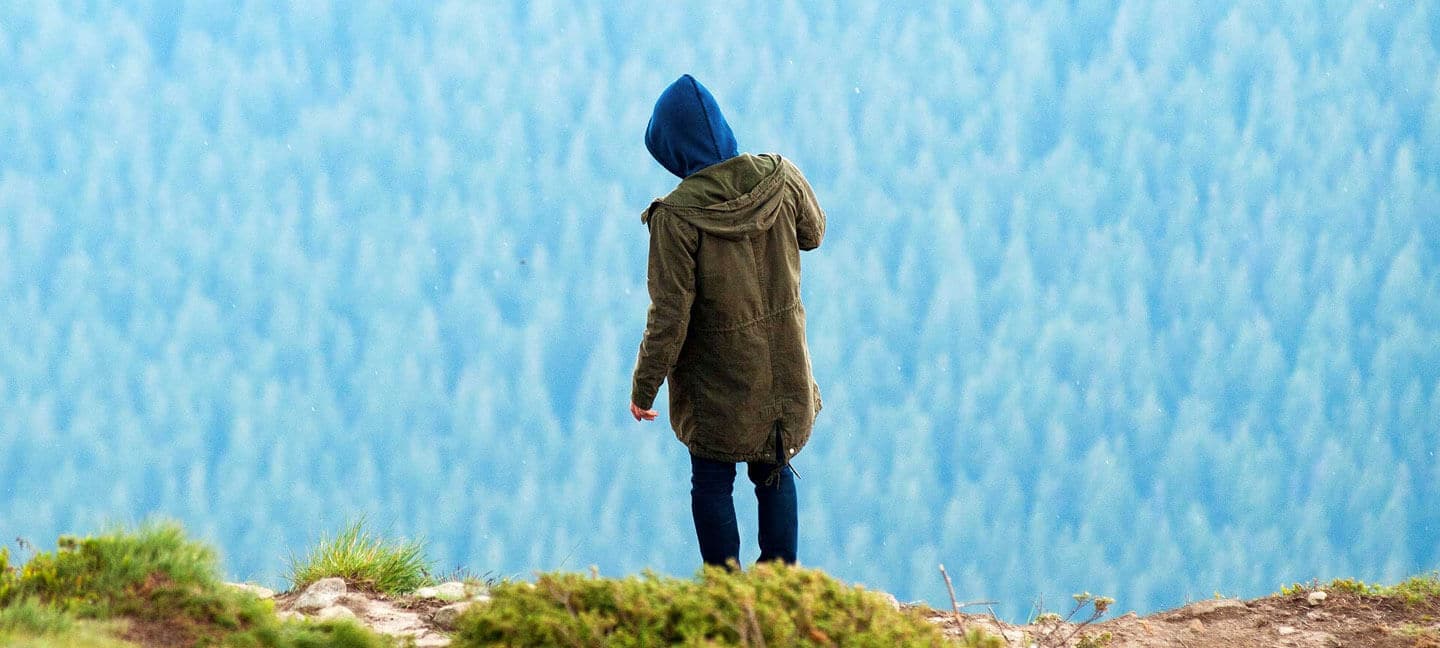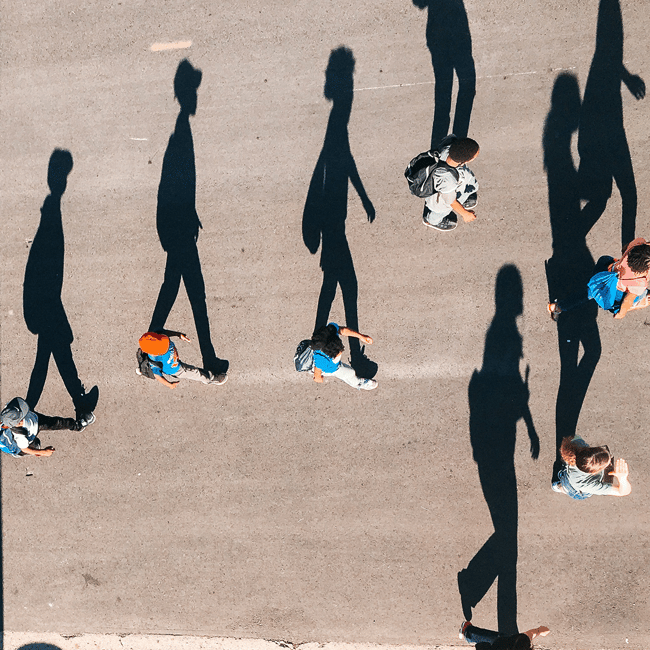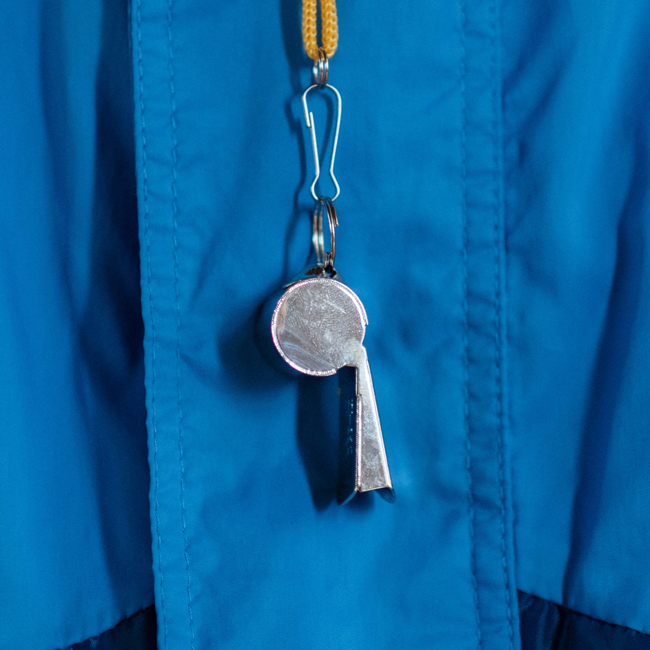Ethics Explainer: Moral Relativism
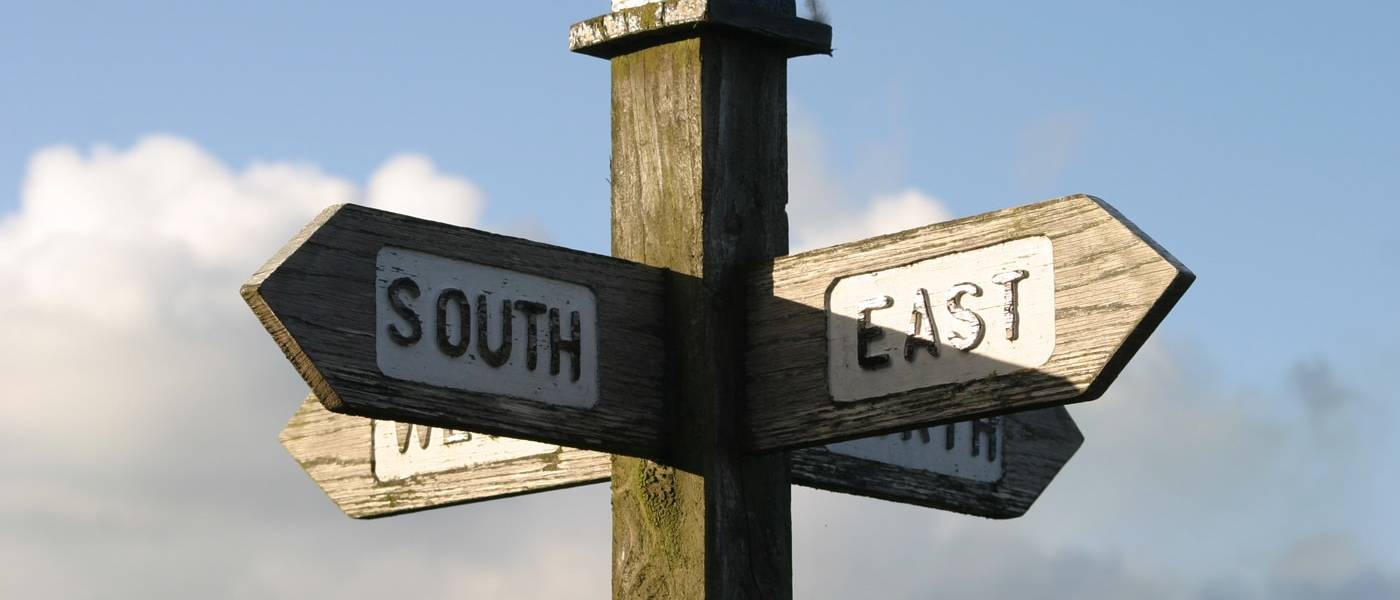
Moral relativism is the idea that there are no absolute rules to determine whether something is right or wrong. Unlike moral absolutists, moral relativists argue that good and bad are relative concepts – whether something is considered right or wrong can change depending on opinion, social context, culture or a number of other factors.
Moral relativists argue that there is more than one valid system of morality. A quick glance around the world or through history will reveal that no matter what we happen to believe is morally right and wrong, there is at least one person or culture that believes differently, and holds their belief with as much conviction as we do.
This existence of widespread moral diversity throughout history, between cultures and even within cultures, has led some philosophers to argue that morality is not absolute, but rather that there might be many valid moral systems: that morality is relative.
Understanding Moral Relativism
It’s worth pointing out that the philosophical notion of moral relativism is quite different from how the term is often used in everyday conversation. Many people have been known to say that others are entitled to their views and that we have no right to impose our view of morality on them.
This might look like moral relativism, but in many cases it’s really just an appeal for tolerance in a pragmatic or diplomatic sense, while the speaker quietly remains committed to their particular moral views. Should that person be confronted with what they consider a genuine moral violation, their apparent tolerance is likely to collapse back into absolutism.
Moral relativism is also often used as a term of derision to refer to the idea that morality is relative to whatever someone happens to believe is right and wrong at the time. This implies a kind of radical anything-goes moral nihilism that few, if any, major philosophers have supported. Rather, philosophers who have advocated for moral relativism of some sort or another have offered far more nuanced views. One reason to take moral relativism seriously is the idea that there might be some moral disagreements that cannot be conclusively resolved one way or the other.
If we can imagine that even idealised individuals, with perfect rationality and access to all the relevant facts, might still disagree over at least some contentious moral matters – like whether suicide is permissible, if revenge is ever justified, or whether loyalty to friends and family could ever justify lying – then this would cast doubt on the idea that there is a single morality that applies to all people at all times in favour of some kind of moral relativism.
Exploring Relativity
The key question for a moral relativist is what morality ought to be relative to. Gilbert Harman, for example, argues that morality is relative to an agreement made among a particular group of people to behave in a particular way. So “moral right and wrong (good and bad, justice and injustice, virtue and vice, etc.) are always relative to a choice of moral framework. What is morally right in relation to one moral framework can be morally wrong in relation to a different moral framework.
And no moral framework is objectively privileged as the one true morality.
It’s like different groups playing different codes of football, wherein one code a handball might be allowed but in another, it’s prohibited. So whether handball is wrong is simply relative to which code the group has agreed to play.
Another philosopher, David Wong, argues for “pluralistic relativism,” whereby different societies can abide by very different moral systems. So morality is relative to the particular system they have constructed to solve internal conflicts and respond to the social challenges their society faces.
However, there are objective facts about human nature and wellbeing that constrain what a valid moral system can look like, and these constraints “are not enough to eliminate all but one morality as meeting those needs.” They do eliminate perverse systems, like Nazi morality that would justify genocide, but allow for a wide range of other valid moral views.
Moral relativism is a much misunderstood philosophical view. But there is a range of sophisticated views that attempt to take seriously the great diversity of moral systems and attitudes that exist around the world, and attempts to put them in the context of the social and moral problems that each society faces, rather than suggesting there is a single moral code that ought to apply to everyone at all times.
Ethics in your inbox.
Get the latest inspiration, intelligence, events & more.
By signing up you agree to our privacy policy
You might be interested in…
Big thinker
Relationships
Big Thinker: Jeremy Bentham
Big thinker
Politics + Human Rights, Relationships
Big Thinker: Michel Foucault
Explainer
Relationships
Ethics Explainer: Begging the question
Opinion + Analysis
Relationships
You don’t like your child’s fiancé. What do you do?
BY Dr Tim Dean
Dr Tim Dean is Philosopher in Residence at The Ethics Centre and author of How We Became Human: And Why We Need to Change.
Elf on the Shelf is a fun and festive way to teach your child to submit to the surveillance state

Elf on the Shelf is a fun and festive way to teach your child to submit to the surveillance state
Opinion + AnalysisRelationships
BY Matthew Beard 15 DEC 2020
Imagine if every school in Australia introduced comprehensive surveillance technology coupled with facial recognition, and was able to assign a score to each student based on how good a “school citizen” they were.
Students could access an app that provided them with feedback on things they’d done, or failed to do, throughout the day. The day-to-day data could then be collected and a general character assessment made of the child on, let’s say, a year-by-year basis. At the end of the year, maybe at presentation night, students would be told if they’d been “good” school citizens or not.
I’m going to go out on a limb and suggest most people would find this idea pretty repugnant. Many would see echoes of China’s oppressive social credit system. Words like “Orwellian” would be thrown around with reckless abandon.
Just don’t tell that to the families around the world for whom Christmas involves a character check from Santa Claus. Certainly don’t tell the 11 million-odd who have “adopted’” an Elf on the Shelf and will have dusted it off for the season.
If you haven’t heard of it, the Elf on the Shelf explains how Santa is able to see you when you’re sleeping and know when you’re awake. Manufactured by Creatively Classic Activities and Books, the Elf on the Shelf is a tool used by families to add some more wonder and fun to the Christmas season.
Parents move the elf around, and kids look to see where it will appear next. They’re often also told that because they don’t know where the elf is or what the elf is watching, they’d better make sure they’re behaving themselves. After all, the elf’s job is to report back to Santa.
That’s right. Santa has an army of tiny, surprisingly mobile little snitches embedded in every home, watching, collecting data, feeding it back to the big guy. For some families, the elf also leaves handy notes for the kids, to make sure they stay on St Nick’s good side. “I don’t like it when you don’t share your toys. I don’t want to have to tell Santa about this behaviour,” reads one note a parent shared online.
Social credit be damned. Santa had it figured out this whole time!
We tend to be more sceptical of surveillance when it comes to our kids. For instance, recent trials of facial recognition in Victorian schools have been met with human rights concerns and academic criticism. When Mattel developed Aristotle, a digital assistant to be given to newborn children who would grow and develop alongside them, it was pulled from the market for privacy concerns. Even tools like GPS tracking apps are the subject of general debate and controversy.
There are good reasons for these concerns. Law professor Julie E Cohen argues that “privacy fosters self-determination” and that it is “shorthand for breathing room to engage in the processes of boundary management that enable and constitute self-development”.
So, not only does the collection of children’s data put them at risk if that data falls into the wrong hands, there’s a stifling effect on children’s development when they feel like they’re continually being watched.
But the Elf on the Shelf isn’t quite analogous to China’s mass surveillance. For one thing, Santa only has about 11 million elves out there, which is amateur hour compared to China’s “Skynet” of over 200m cameras. For another, the Elf on the Shelf doesn’t use fear and promises of safety to gain people’s comfort with surveillance and data gathering; it uses fun.
Less like a social credit system, more Facebook. Esteemed company indeed.
Of course, Elf on the Shelf isn’t actually surveillance because – spoiler alert – it’s based on a myth. I’ve no doubt plenty of parents will dismiss what I’m saying here as unnecessary scaremongering over something that’s actually fine, fun and basically a bit of stupid play at Christmas time.
While this wouldn’t be the first time a philosopher has been accused of sucking the fun out of a situation, I’m not sure that argument cuts it.
First, the rise of “sharenting” and the pushback from children against parents who post too much information about them online indicates parents are not always the best custodians of their kids’ privacy. In general, a generation prone to oversharing on social media may not be the best judges of what lessons Elf on the Shelf is teaching.
Second, and more importantly, the effects of surveillance work even if the surveillance isn’t really happening. This was the genius of the infamous Panopticon – a prison designed by British philosopher Jeremy Bentham, where a guard tower could potentially observe any prisoner at any given time, but no prisoner could see the guard tower. It was always possible that you were being observed, which meant you behaved as though you were being observed at all times.
This logic is, of course, very creepy. It’s also very common – as another philosopher, Michel Foucault, later pointed out. You can build workplaces, schools, mental health institutions and yes, nationwide mass surveillance networks on similar principles. The concept is that the possibility of observation and judgement means there’s no need to force people to conform – they do it themselves. Arguably, China’s social credit system is the high-water mark of the logic of the Panopticon.
But the rhetoric – intentional or not – behind Elf on the Shelf has echoes of the Panopticon. It reads from the same playbook. The elf appears at random times and in random locations. It’s always possibly watching.
Whether that’s the goal parents are trying to achieve or not, we ought to be concerned about the effects of introducing and normalising this kind of behaviour monitoring and observation to kids.
As Olly Thorn, the philosopher behind Philosophy Tube tweeted: “He sees you when you’re sleeping He knows, when you’re awake, It’s a subtle, calculated technology of subjection.”
This isn’t necessarily a reason to ditch the tradition, but we can do away with the creepiness – especially as the myth becomes more and more like reality. It’s entirely possible to have an Elf on the Shelf and not play this game. Maybe the elf is just waiting for Santa to come and deliver the presents – and helps him unload the gifts. Perhaps you don’t use the elf as a tool for discipline but as a game and a story that’s played together.
Maybe you don’t need to tell the Santa story at all, but that’s another matter.
This article was first published in The Guardian Australia on 16 December, 2019.
Ethics in your inbox.
Get the latest inspiration, intelligence, events & more.
By signing up you agree to our privacy policy
You might be interested in…
Opinion + Analysis
Health + Wellbeing, Relationships
How to deal with people who aren’t doing their bit to flatten the curve
Explainer
Relationships
Ethics Explainer: Blame
Explainer
Relationships
Ethics Explainer: Teleology
Opinion + Analysis
Relationships
The wonders, woes, and wipeouts of weddings
Join our newsletter
BY Matthew Beard
Matt is a moral philosopher with a background in applied and military ethics. In 2016, Matt won the Australasian Association of Philosophy prize for media engagement. Formerly a fellow at The Ethics Centre, Matt is currently host on ABC’s Short & Curly podcast and the Vincent Fairfax Fellowship Program Director.
Treating citizens as customers is a recipe for distrust
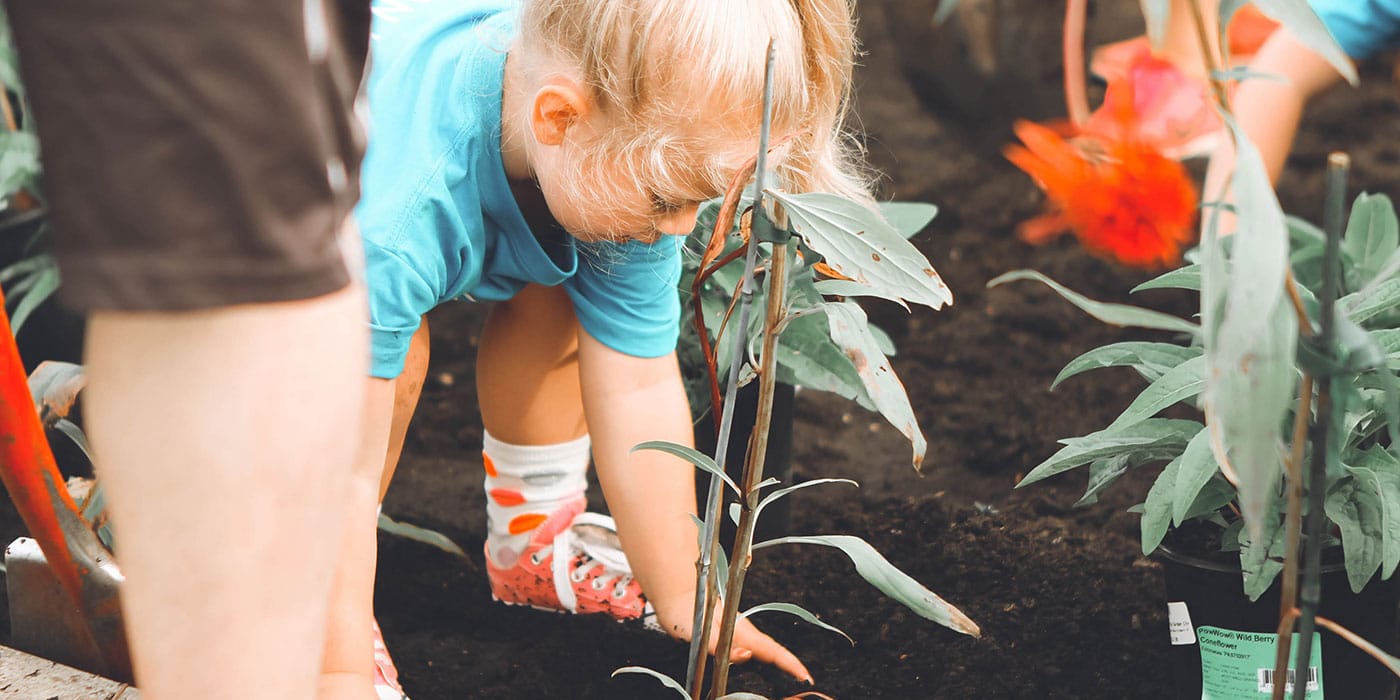
Treating citizens as customers is a recipe for distrust
Opinion + AnalysisBusiness + LeadershipRelationships
BY Eva Cox 8 DEC 2020
My 1995 ABC Boyer Lectures, ‘A Truly Civil Society’, outlined the ill effects of the then decade-plus political paradigm shift to neoliberalism.
In the years following WW2, governments implemented policy changes to ensure well-functioning societies that delivered social fairness. This was to avoid a repetition of the pre-war rise of dictatorships, such as happened in Germany and Italy where democracies were overthrown by the fascists. Much of this reconstruction included expanding health, education and welfare for communities to balance the existing inequities of market wealth creation.
From the 1980s, the failing USSR and the globalising of finance via petrodollars allowed big business to shift the paradigm to market forces and reduce the scope of governments. The effects were becoming evident while I was writing the Boyer’s in 1995, as neoliberalism was exacerbating the cuts to social goals and public funding. Growing distrust of democracy was also becoming apparent in many countries, including Australia.
Now, twenty-five years of policy shifts later, including a market-created Global Financial Crisis in 2008, these changes continue to have ill-effects on democratic governance and trust. Policies such as unfair distributions of taxes that favour businesses and the better-off have exacerbated this, as has the privatising of public services and public ownership of utilities and institutions. The promise that the private model of competition and wealth creation would create trickle-down wealth failed to eventuate. Nor did we see any sign of the market lowering prices for these services, as is promised by this model. Citizens, redefined now as just customers of what were once public services, have not found the market more efficient or effective.
Prioritising growth and profits over community needs and connections exacerbates distrust of those in power.
Finding jobs becomes more difficult as growth slows, and low wages remain for many of the often-feminised essential services, such as nursing and child care. The new gig-economy has also increased feelings of insecurity. Ergo, it has not been surprising that over the last decades there have been growing feelings amongst many people in democracies, including Australia, that those in power are not to be trusted.
Now that the neoliberal paradigm shift is obviously failing, we need to devise and define alternatives. The failure has created a fertile ground for the increasingly irrational ‘strong men’ leaders to grab power. These strong men undermine the idea of democracy and surge in on a wave of distrust. We now have in Australia, as elsewhere, increasing beliefs that society is unfair, feelings of real anger and despair, and a deep distrust of the political system. It is this unfairness that is the damaging cause of most of our problems.
The range of inequities in our current system include politics and policies that respond mainly to business demands and neglect community needs. The recent budget is a good example, where subsidies were available to incentivise businesses to hire more people, even if there were too few customers. Yet much-needed jobs in community and public spheres were barely mentioned.
We need changes that create a sense of fairness by providing good social and public services. People need to feel that they live in societies where they and their contributions are valued and their voice matters. We are social beings, connected, and need to feel safe and involved.
Assuming wealth inequality is a causal factor fails to recognise the real causes: self-interested economic goals that ignore and exclude the values of fairness and trust that are necessary to create a truly civil society.
The national cabinet’s response to the pandemic, an effective public health collaboration, reminded people what good governance looks like. Consequently, it has improved the levels of voter trust. There are now signs of reversal as the PM reverts to a private sector, economic-led recovery.
Now it’s up to us. We need policies that set social goals, fix environmental damage, and create fairness and long-term well-being. Here are some radical ideas: stop privatising community services and utilities, fix the messy unfair welfare system (perhaps introduce a universal social dividend), engage communities in planning for their needs, reform the tax system so that it’s fairer in the redistribution of resources, pass the Uluru Statement from the Heart. This way, everybody should get a fair go.
Outrageous ideas? Maybe, but replacing greed and self interest with fairness requires optimism and another paradigm shift!
This project is supported by the Copyright Agency’s Cultural Fund.
Ethics in your inbox.
Get the latest inspiration, intelligence, events & more.
By signing up you agree to our privacy policy
You might be interested in…
Opinion + Analysis
Business + Leadership
Can there be culture without contact?
Opinion + Analysis
Relationships, Politics + Human Rights
How to have a difficult conversation about war
Reports
Business + Leadership
The Ethical Advantage
Opinion + Analysis
Health + Wellbeing, Relationships
Confirmation bias: ignoring the facts we don’t fancy
BY Eva Cox
Eva Cox AO is an Adjunct Professor at The Jumbunna Institute of Research, University of Technology Sydney, looking at the problems of Indigenous policies. She has worked as political advisor, market researcher, academic and activist, with a high media profile. She delivered the ABC Boyer Lectures in 1995 on the theme A Truly Civil Society, on the need for trust as our social glue.
Ethics Explainer: The Other

It’s sometimes said that if we were to find ourselves alone, stranded on a desert island, there’d be no need for us to think about ethics. It’s probably not true, strictly speaking, but it’s a useful way of demonstrating that an enormous amount of the work of ethics lies in puzzling out how we should make our way in a world jam-packed full of other people, all of whom are owed the same kind of respect we are.
As we become preoccupied with the busy, everydayness of our lives, we can often take the people around us for granted. In some cases, this mean we fail to be polite to them, or be grateful for the things they do to help us. In more extreme cases, we can objectify or commodify the people around us – treating them as though they were just tools for our own purposes, rather than people with rights and goals of their own. This runs against the moral imperative advocated by German philosopher Immanuel Kant to never treat people as a mere means to our own ends.
A common solution to this moral problem is to try to remind people of our ‘shared humanity’. We are advised to show empathy, imagine how other people might experience our words and actions and put ourselves in other people’s shoes. These strategies all boil down to one basic belief: if we can just realise how similar we are to the people around us, we’ll stop treating them poorly. For example, the Scottish philosopher David Hume believed sympathy was the foundation of ethics.
However, we should ask seriously how accessible other people’s minds are to us. Can a middle-aged white man really put himself in the shoes of a Rohingan woman being persecuted because of her faith, responsible for three children, none of whom have eaten in days? Perhaps not, and so it’s a problem if we argue that our moral concern needs to be grounded in a recognition of what we have in common. Because sometimes, we have nothing in common.
The Other is a term used to capture the ways other people are different from us. It’s also used to describe the people who we keep distant from us because we decide they’re not like us. The process of Othering occurs when we turn fellow humans into abstract entities we can distance ourselves from or treat as less-than-human.
We often think of our social relationships in terms of groups – we have an ‘in group’ and an ‘out group’. These groups are distinguished by who we identify ourselves with and who we identify ourselves against. Othering happens when we treat the members of the out group – the people we don’t identify with – as though they were less important than the members of our in group.
Philosopher Simone de Beauvoir thought “Otherness is a basic category of human thought”. As soon as we think about what something is, we think about the opposite – the Other. However, natural or not, Othering isn’t a neutral process – it tends to lead to the mistreatment of the people we decide are Other.
Once we identify the Other it becomes easier to justify treating them in ways we wouldn’t treat a fellow person. We can abuse, exploit or persecute them without feeling guilty. Othering was a factor in enabling the Holocaust, the slave trade and the Rwandan genocide. In each case, the victims’ humanity became invisible because people focussed on what made them different.
Given this, it would seem like the solution to Othering would be, as David Hume suggests, to focus on what we have in common rather than what sets us apart. But this isn’t a perfect solution either, because the process of distinguishing who we are from who we’re not is part of the way we develop our identity.
By focussing only on what is similar between us and other people, we lose an important tool in discovering our personal identity. Oftentimes it’s our differences that make us unique.
When we look at people as being ‘like us’, it can help us to relate but it can also be a little bit narcissistic. Instead of looking on the Other as someone unique, complicated and different, we treat them like a mirror. We try to find ourselves in other people instead of trying to find what defines them as them.
The philosopher Emmanuel Levinas thought process of engaging with the Other and acknowledging the differences between us and them was the basis of ethics. All our theories, concepts and ideas about what to do and how to live start by acknowledging that we must engage with other people who are different from us. Levinas believed that this otherness – which he called alterity – was something to celebrate. Rather than looking for commonality to ground our moral concern, we should recognise that another person is a universe of mystery to us. Something to fill us with awe, care and concern.
Encountering the Other is difficult. The Other challenges our way of doing things, demands our attention and holds us responsible for our actions. Their presence forces us to rethink our understanding of the way the world works. It’s much easier to overlook that difference by looking for similarities or make those differences seem evil than it is to genuinely engage with them. Yet this is exactly what Levinas wanted us to do.
In fact, Levinas wanted us to look the Other in the face. In doing so, we look upon the face of someone completely different from us. We also start to recognise our ethical responsibility toward them, which is a really simply one: don’t kill them.
Think of all the films and stories where someone is about to commit an act of murder until at the last minute they see the eyes of the person they’re going to kill. Suddenly, they can’t do it. One explanation for these changes of heart is that in looking into the Other’s face, these people realise their ethical responsibilities.
This philosophy of the Other is powerful because it encourages us to rethink our attitude toward difference. It acknowledges there are real and sometimes insurmountable differences between us but tells us that’s OK. Instead of getting caught up searching for what we have in common or stigmatising the things that set us apart, we should be open to learning from every individual we come across – no matter how much or how little of ourselves we see in them.
Ethics in your inbox.
Get the latest inspiration, intelligence, events & more.
By signing up you agree to our privacy policy
You might be interested in…
Opinion + Analysis
Health + Wellbeing, Relationships, Science + Technology
When do we dumb down smart tech?
Opinion + Analysis, READ
Society + Culture, Relationships
Losing the thread: How social media shapes us
Big thinker
Health + Wellbeing, Relationships
Big Thinker: Shulamith Firestone
Explainer
Politics + Human Rights, Relationships
Ethics Explainer: Dignity
BY The Ethics Centre
The Ethics Centre is a not-for-profit organisation developing innovative programs, services and experiences, designed to bring ethics to the centre of professional and personal life.
Ethics Explainer: Akrasia

If you’ve ever helped a child to master toileting, you’ll know of the moment where your patience and understanding expires.
It’s somewhere between the sixth wet bed and the poo stains on the walls, where you beg, implore the child to explain. “You know how to use the toilet, why don’t you just do it?!”
Well, park that frustration friend, because if the ancient Greek philosopher Aristotle is to be believed, we’re all a bit like that child, smearing shit on the walls despite knowing better. Aristotle believed in something he called akrasia – which is usually translated as ‘weakness of the will’, but I prefer to translate it as ‘incontinence’.
That’s right, Aristotle thought most of us had, at one stage or another, a leaky ethical bladder. We know what’s right and wrong; we know how we should act, and yet we wet ourselves rather than actually doing it.
This happens, according to Aristotle, for two reasons. First, passion. There are times when our emotions, ego, excitement or panic get the better of us, and our reason disappears. This can lead us to violence, cruelty, thoughtlessness or any number of things that we know are wrong. Like a toddler wetting themselves in fear or excitement, our moral restraint and discipline is overwhelmed by the emotion of the moment.
This form of akrasia often feels like being ‘swept up’ in the moment. We suddenly find our fists clenched, we find ourselves unable to swallow a hurtful thought – we are, for all intents and purposes – not in control. However, we’re responsible for our lack of control. According to most scholars who believe akrasia is a thing, we lose control because we haven’t worked hard enough to master ourselves. “I’m sorry I said that, I totally lost control,” is an explanation here – not an excuse.
The second way we can be overwhelmed is weakness. Sometimes we are the child who just doesn’t make it to the bathroom in time and has an accident on the floor. Morally, we know that we should try to minimise carbon emissions and that means we should get out of our pyjamas and walk the five minutes to pick up takeaway. But wouldn’t it be faster, and easier, to drive? Here, it’s clear what should be done. It’s just we don’t have the strength of will to do it.
Akrasia of this kind is different to the ‘heat of the moment’ stuff we discussed above. In this case, the little voice in our heads is nagging at us: ‘you should say something’, ‘you shouldn’t be doing this’, ‘that’s your son’s Easter chocolate Matt, you shouldn’t be eating it’… stuff like that. Here, we’re perfectly aware of our failing and watch ourselves fail, seemingly incapable of doing otherwise.
However, there are some who believe akrasia is actually impossible. They reject outright the idea that someone can know what is right to do and also refuse to do that thing. Here’s how their argument looks:
- Every choice people make is made because they see something good in that action.
- Therefore, nobody willingly chooses to do something bad.
- When people appear to be choosing to do something bad, it is because they think that bad thing is, in some way, good.
- Bad things happen because people are mistaken about what’s good.
The belief behind akrasia is that we can know – really know – what’s good and shit the bed when it comes to actually doing it. But would someone who really understood why we need to speak up against abuses of power ever remain silent? Critics of akrasia think not. They think the reason why someone wouldn’t speak up against a bully is because they’ve decided that in this situation, they momentarily believe that the good of personal safety trumps the good of justice. That is, the source of unethical behaviour is in mistaken beliefs, not in weak character.
However, this kind of reasoning comes close to committing the ‘No True Scotsman’ fallacy. The This fallacy, named is named for the Scottish-themed anecdote used to demonstrate it, is a kind of circular reasoning. Here’s how it looks:
- Claim: All Scots are brave and never flee battle
- Counter-evidence: But MacDougall is a Scot and he fled battle yesterday!
- Denial of evidence: MacDougall isn’t a true True Scots are brave and never flee battle.
The No True Scotsman is a way of shifting the goal posts so counterfactuals can’t actually disprove your claim. They are just reworked to support it further.
Critics of akrasia seem to make a similar claim:
- Claim: People do the wrong thing because they don’t know what’s right
- Counter-evidence: Yesterday I knew I should have returned the wallet I found with the cash still inside, but I took the cash and then returned the wallet
- Denial of evidence: You didn’t truly know that’s what you should have done. Otherwise, you would have done it.
This might seem like an academic dispute. And that’s because it is. But it’s also one that matters. Being able to identify the source of ethical failure is crucial if we’re going to prevent it. If ethical failures are problems of knowing and understanding what is good and why it’s good, then the solution is going to involve a lot of education.
If instead, ethical failures are connected to weakness of the will, then our ethics training needs to look a bit more like toilet training: getting us to identify the cues, knowing what to do ahead of time and having the strength to hold on, even when our will seems like it’s going to give way.
Ethics in your inbox.
Get the latest inspiration, intelligence, events & more.
By signing up you agree to our privacy policy
You might be interested in…
Opinion + Analysis
Health + Wellbeing, Relationships
The myths of modern motherhood
Opinion + Analysis
Relationships, Society + Culture
What money and power makes you do: The craven morality of The White Lotus
Explainer
Relationships
Ethics Explainer: Authenticity
Big thinker
Relationships
Big Thinker: Jean-Paul Sartre
BY Matthew Beard
Matt is a moral philosopher with a background in applied and military ethics. In 2016, Matt won the Australasian Association of Philosophy prize for media engagement. Formerly a fellow at The Ethics Centre, Matt is currently host on ABC’s Short & Curly podcast and the Vincent Fairfax Fellowship Program Director.
BY The Ethics Centre
The Ethics Centre is a not-for-profit organisation developing innovative programs, services and experiences, designed to bring ethics to the centre of professional and personal life.
Little Bad Thing
A podcast series about the choices we wish we could undo

A podcast series about the choices we wish we could undo
A podcast series about the choices we wish we could undo
Each week, philosopher Eleanor Gordon-Smith interviews real people to revisit a moment in their life when they felt they didn’t do the right thing. What unfolds are honest stories of lying, cheating, consent, blame and forgiveness that ultimately reveal the complexities of being human.
“Most of the interesting stuff doesn’t happen under ideal circumstances – it happens in the dark, with the little lapses we’re taught to be ashamed of, to forget, or to write off. Little Bad Thing and the people who shared their stories with me bring those things to the surface.
“We’re all so busy concealing our mistakes for fear of judgement that we forget that other people have made the same ones and that there can be insight and connection in talking about them,” says Eleanor Gordon-Smith.
Smart, dark, wry and surprising, this is a podcast for anyone who’s ever experienced the conflict of a hard decision – or is still haunted by a small one.
Each episode runs 20 minutes and features a mix of narration, interview and general discussion.
Listen to the Little Bad Thing Trailer
SEASON ONE EPISODES
All In One Basket
Georgina was sub-letting an apartment and took a few items when she moved out – with the full intention of returning them to the owner when they came back. She just never told them she’d taken them, even when they returned home. Then on a night out, Georgina received a text from the owner, branding her a thief. At first, she thought it was an overreaction – she wasn’t a thief…was she?
Listen to Ep 1 on Apple or Spotify now.
Read more about the ethical themes of this episode:
Ethics Explainer: Moral imagination
Ignoring the people we don’t see
Why learning to be a good friend matters
Bystanders Standing By
Thomas was working as a checkout kid when it happened. His boss and fellow shelf-stackers had always had a problem with shoplifters. But that day was different. The culprit was a mentally handicapped shoplifter who they chased down, and Thomas’ boss did something terrible to him. Thomas spent years wondering why he just stood by. In this episode, he realises why.
Listen to Ep 2 on Apple or Spotify now.
Read more about the ethical themes of this episode:
Ethics Explainer: Akrasia – an Ancient Greek term for knowing the right thing and choosing not to do it.
Bystander intervention in Hannah Arendt’s article about the trial of Adolf Eichmann and coined the term “the banality of evil”.
Do The Right Thing
Lucia Osborne Crowley was raped when she was 15 years old. As an adult she decided to do something about what had happened – something that helped thousands of people, but changed her life forever. Some days she wishes she could go back to the world before she made that decision – even though she thinks it was the right one. If doing something is right, why does it sometimes feel so bad?
Listen to Ep 3 on Apple or Spotify now.
Read more about the ethical themes of this episode:
Lucia’s book
Denis Gentilin’s discussion of victims “finding their voice”.
Oscar Schwartz’s piece about what justice requires after sexual violence.
The Art of The Scam
David was just out of university, deep in debt, and eager for the chance to make money. He scored an internship at an investment firm which he quickly thought was fishy. But he would get a cut of any investment that he managed to source for them. That’s when he went to someone he already knew – and told them about an exciting business opportunity…
Listen to Ep 4 on Apple and Spotify now.
Read more about the ethical themes of this episode:
Sell out, burn out. Decisions that won’t let you sleep at night by Fiona Smith that looks at whether the business world has different codes of moral conduct from the ordinary world.
Why do good people do bad things by social psychologist Samuel Effron.
Two Kinds of Bully
Dan was trained in combat and having a bad day, so when he saw a stranger harassing a woman on the street, he went over to him ready to throw a punch if he needed to. At the time he thought he was on the side of justice – but when he got to the stranger, something happened that changed his mind. Months later he reflects on self-deceit and the perils of vigilante justice.
Listen to Ep 5 on Apple and Spotify now.
Read more about the ethical themes of this episode:
Shadow Values to find out more about the ways we can be guided by values that aren’t always visible to us.
Let’s unpack the notion of courage for more discussion of courage and what bravery involves.
The Sincerest Form of Flattery
Lukasz is a Polish font designer. He’s made some of the biggest fonts in the world. He fell in love with one particular font, but buyers kept abandoning it at the last minute. He was bereft at the thought of not finishing it until one day – a major company presented a way to get it finished – that would involve theft of another fellow font designer’s work.
Listen to Ep 6 on Apple and Spotify now.
Read more about the ethical themes of this episode:
Watch Michael Walzer explain “the problem of dirty hands” to learn more about the moral challenge of doing something wrong in exchange for something bigger.
The ethics of Damien Hirst’s use of indigenous art for more on art, theft, and ethics of design.
And a Toy Xylophone
Michelle Brazier broke up with her partner of 7 years by arriving home from a work trip, taking her toothbrush and leaving with a carry-on suitcase containing a couple of things. The break up took 5 minutes. Years later Michelle wonders why she didn’t feel able to have That Conversation.
Listen to Ep 7 on Apple and Spotify now.
Read more about the ethical themes of this episode:
Michelle Brazier’s comedy and music.
Ethics explainer on Vulnerability to explore the key themes of care, separation, and gently rejecting others in this episode.
A guide to having a difficult conversation.
All's Fair in Love and War
Simon Kennedy Jewel was in charge of distributing rations in a refugee camp in Central America. One day, he was given orders to stop providing food to people who didn’t have their ID card. Dozens went hungry. There was a riot. Back in Australia, Simon reflects on when trying to do good leads to a lot of bad, and how to rebuild when you lose your moral compass.
Listen to Ep 8 on Apple and Spotify now.
Read more about the ethical themes of this episode:
Ethics Explainer: Deontology – a school of ethical thought which emphasises principles for their own sake instead of because of their good effects.
A guide to making tough moral decisions.
How employers can help when their employees have to make these decisions.
Find out more about Ethi-call – a free counselling service.
Whats inside the guide?
WITH THANKS
Supported by donations from The Ferris Family Foundation and the Charles Warman Foundation.
If you like what we do and you want to help us make more, donate here or sign up to hear about our events and articles.
A production of The Ethics Centre. Mix and Sound Design by Bryce Halliday. Music by Breakmaster Cylinder & Blue Dot Sessions. Hosted and produced by Eleanor Gordon-Smith. Sound edits by Colin Ho, Executive Producer Danielle Harvey.
Narcissists aren’t born, they’re made

President elect Joe Biden won the recent United States election with 306 electoral college votes to Donald Trump’s 232. Biden also won the popular vote around 80 million to 73 million.
Trump has alleged the election is “rigged” and fraudulent, claims based on no evidence whatsoever, while his legal challenges have been thrown out by one court after another. In an attempted coup d’état, Trump has refused for weeks to concede defeat or to willingly undertake the essential part of the democratic process assisting the transition to the new administration before vacating the White House. It is hard to find a worse example of narcissistic entitlement.
Lack of empathy is at the heart of narcissism too, and there has been a breathtaking callousness in Trump’s indifference to the Covid catastrophe unfolding in the US and his persistent refusal to act. There are more than 12 million Covid cases in the US, among the very highest infection rates per million people in the world. More than a quarter of a million people have died.
On Friday November 20, new cases topped 200,000 in one day and there were more than 2000 deaths, adding to the horrific 250,000 plus death toll. The need for decisive action could not be more urgent. The extreme self-focus, the ‘All About Me’ aspect of narcissism, is evident as Trump plays golf, idly suggests war with Iran, and tweets self-pityingly about being cheated of his “rightful” victory.
One can see the origins of Trump’s narcissism growing up spoiled and overindulged in a wealthy but emotionally harsh and cold family. Donald’s father, Fred Trump, a real estate mogul, would berate him; “Be a Killer not a Loser.” That was the family ethos, the motto. To show kindness, care or admit vulnerability was to be a “loser.” His father not only encouraged Donald in his cruel bullying of siblings but also joined in. Both bear responsibility for the destruction of Donald’s elder brother, Fred Trump junior.
In the Trump family, only making money was valued. Fred was a highly skilled commercial airline pilot who was jeered at as nothing more than a “chauffeur in the sky,” and treated as beneath contempt because his profession did not earn the megabucks that real estate did. Fred was driven to alcoholism, depression, and died early at 42, suicide by drinking. It wasn’t just his toxic family, however, that created the malignant narcissist who refuses to leave the White House.
They call it the “asshole effect.” Stunning new research by the University of California’s Paul Piff shows that wealth increases narcissistic behaviour.
Piff conducted a series of real-life experiments which showed for example, that people driving new model and more expensive cars were 4 times more likely to cut drivers of lower status vehicles off at a crossing. They were three times less likely to yield at a pedestrian crossing. Drivers of the least expensive cars all gave way to pedestrians.
Intrigued by this, Piff did lab experiments and found “the richer the meaner” effect. The richest students were meaner and more likely to consider “stealing or benefiting from things which they were not entitled” than those from lower-class backgrounds. Piff said that “upper-class individuals feel more entitled, are less concerned with the needs of others, and at times were prepared to behave selfishly, even unethically, to get ahead.”
That is deeply concerning in times of mounting inequality. Wealthier people were more likely to agree with statements such as “I honestly just feel more deserving than other people.” They were also vainer, more likely to rush to a mirror and check themselves out if a photograph was being taken. They drew larger circles to represent themselves than they drew to represent other people.
If you think of yourself as bigger and more important than others, it’s not surprising that you have an excessive sense of entitlement and exploit others. They simply don’t matter as much as you do.
Trump is notorious for being cheap and cheating his employees of appropriate payments, as well as ruthlessly getting rid of them once they have passed their use-by date.
Piff’s laboratory experiments revealed that even when poorer people were simply primed to think of themselves as wealthy, this increased feelings of superiority and entitlement, and they began to behave selfishly. When people look down on others, “they tend to acquire the belief that they are better than others, more important and deserving.”
This led to bad behaviour, for example helping themselves to more sweets meant for children in a lab next door, than if they were primed to feel disadvantaged. “That suggests it is more the psychological effects of wealth than the money itself,” Piff said.
Strikingly, Piff found that in unequal societies, higher-income people were richer and meaner – less likely to give money to charity than poorer people – than in more equal societies.
It is not only wealth which can increase narcissistic behaviour. Patriarchal society asserts the superiority of men over women and gives them greater entitlements. Hardly surprising then that research shows that narcissism is higher in men than women. Research also shows that male entitlement and a sense of superiority can have appalling consequences for increased sexual aggression and predation and is a key factor in domestic violence.
Fame increases narcissism and male sexual entitlement, as we can see by the numbers of high-profile powerful men like Harvey Weinstein called out and brought to justice by the Me Too movement. Donald Trump infamously said “I’m automatically attracted to beautiful — I just start kissing them. It’s like a magnet. Just kiss. I don’t even wait. When you’re a star, they let you do it. You can do anything. Grab ’em by the pussy. You can do anything!”
It’s not just rich and famous men who can behave like that. The scandal over a so-called “Triwizard Shorenament,” organised by privileged boys at the elite Sydney private boys school Shore, which charges $30,000 in annual fees, reeked of entitlement. Their plans for Muck Up day were racist, misogynist and cruel; “Spit on a homeless man”, “have sex with a woman over 80 kilograms,” or a woman who “scored” a lowly 3 out of 10 for looks, have sex with “an Asian chick”, and shit on a train.
So what is the answer?
There are clear lessons from the research on narcissism. Anything which leads to a sense of superiority and entitlement is bad news. Hierarchies among human beings based on wealth, race, sexuality or gender need to be challenged. Economic inequality leads to more narcissistic behaviour than exists in more equal societies. In parenting and education, we should beware the narcissistic pitfalls of privilege.
A sense of superiority and entitlement leads to exploitative and even cruel behaviour. If lack of empathy is a core component of narcissism with devastating results, then we need to engage in programs proven to raise empathy in schools. And we desperately need anti-entitlement programs asserting an ethic of care for others, instead of “Me First” as an ideal to live by.
This project is supported by the Copyright Agency’s Cultural Fund.
Ethics in your inbox.
Get the latest inspiration, intelligence, events & more.
By signing up you agree to our privacy policy
You might be interested in…
Opinion + Analysis
Relationships
The philosophy of Virginia Woolf
Opinion + Analysis
Relationships
Paralympian pay vs. Olympian pay
WATCH
Relationships
Consequentialism
Opinion + Analysis
Business + Leadership, Relationships
Treating citizens as customers is a recipe for distrust
BY Anne Manne
Anne Manne is a cultural critic, essayist and writer. A former columnist for the Australian and the Age, she now mainly writes longer essays for The Monthly magazine on contemporary social issues. Her works include Motherhood (2005), a Quarterly Essay: Love and Money; The Family and The Free Market (2008) and her bestselling The Life of I: the new culture of narcissism. ( 2014, 2015) She is writing a new book on child sexual abuse in the Anglican Diocese of Newcastle.
It’s time to take citizenship seriously again

It’s time to take citizenship seriously again
Opinion + AnalysisBusiness + LeadershipRelationships
BY Tim Soutphommasane 25 NOV 2020
Citizenship isn’t often the stuff of inspiration. We tend to talk about it only when we are thinking of passports, as when migrants take out citizenship and gain new entitlements to travel.
When we do talk about the substance of citizenship, it often veers into legal technicalities or tedium. Think of the debates about section 44 of the Constitution or boring classes about the history of Federation at school. Hardly the stuff that gets the blood pumping.
Yet not everything that’s important is going to be exciting. The idea of citizenship is a critical foundation of a democratic society. To be a citizen is not merely to belong to such a society, and to enjoy certain rights and privileges; it goes beyond the right to have a passport and to cast a vote at an election.
To be a citizen includes certain responsibilities to that society – not least to fellow citizens, and to the common life that we live.
Citizenship, in this sense, involves not just a status. It also involves a practice.
And as with all practices, it can be judged according to a notion of excellence. There is a way to be a citizen or, to be precise, to be a good citizen. Of course, what good or virtuous citizenship must mean naturally invites debate or disagreement. But in my view, it must involve a number of things.
There’s first a certain requirement of political intelligence. A good citizen must possess a certain literacy about their political society, and be prepared to participate in politics and government. This needn’t mean that you can only be a good citizen if you’ve run for an elected office.
But a good citizen isn’t apathetic, or content to be a bystander on public issues. They’re able to take part in debate, and to do so guided by knowledge, reason and fairness. A good citizen is prepared to listen to, and weigh up the evidence. They are able to listen to views they disagree with, even seeing the merit in other views.
This brings me to the second quality of good citizenship: courage. Citizenship isn’t a cerebral exercise. A good citizen isn’t a bookworm or someone given to consider matters only in the abstract. Rather, a good citizen is prepared to act.
They are willing to speak out on issues, to express their views, and to be part of disagreements. They are willing to speak truth to power and willing to break with received wisdom.
And finally, good citizenship requires commitment. When a good citizen acts, they do so not primarily in order to advance their own interest; they do what they consider is best for the common good.
They are prepared to make some personal sacrifice and to make compromises, if that is what the common good requires. The good citizen is motivated by something like patriotism – a love of country, a loyalty to the community, a desire to make their society a better place.
How attainable is such an ideal of citizenship? Is this picture of citizenship an unrealistic conception?
You’d hope not. But civic virtue of the sort I’ve described has perhaps become more difficult to realise. The conditions of good citizenship are growing more elusive. The rise of disinformation, particularly through social media, has undermined a public debate regulated by reason and conducted with fidelity to the truth.
Tribalism and polarisation have made it more difficult to have civil disagreements, or the courage to cross political divides. With the rise of nationalist populism and white supremacy, patriotism has taken an illiberal overtone that leaves little room for diversity.
And while good citizenship requires practice, it can all too often collapse into curated performance and disguised narcissism: in our digital age, some of us want to give the impression of virtue, rather than exhibit it more truly.
Moreover, good citizenship and good institutions go hand in hand.
Virtue doesn’t emerge from nowhere. It needs to be seen, and it needs to be modeled.
But where are our well-led institutions right now? In just about every arena of society – politics, government, business, the military – institutional culture has become defined by ethical breaches, misconduct and indifference to standards.
And where can we in fact see examples of the common good guiding behaviour and conduct? In a society where public goods have been increasingly privatised, we have perhaps forgotten the meaning of public things. Our language has become economistic, with a need to justify the economic value of all things, as though the dollar were the ultimate measure of worth.
When we do think about the public, we think of what we can extract from it rather than what we can contribute to it.
We’ve stopped being citizens, and have started becoming taxpayers seeking a return. It’s as though we’re in perpetual search of a dividend, as though our tax were a private investment. As one jurist once put it, tax is better understood as the price we pay for civilisation.
But our present moment is a time for us to reset. The public response to COVID-19 has been remarkable precisely because it is one of the few times where we see people doing things that are for the common good. And good citizens, everywhere, are rightly asking what post-pandemic society should look like.
The answers aren’t yet clear, and we all should consider how we shape those answers. It may just be the right time for us to take citizenship seriously again.
This project is supported by the Copyright Agency’s Cultural Fund.
Ethics in your inbox.
Get the latest inspiration, intelligence, events & more.
By signing up you agree to our privacy policy
You might be interested in…
Reports
Business + Leadership
Thought Leadership: Ethics in Procurement
Opinion + Analysis
Science + Technology, Relationships
Love and the machine
Opinion + Analysis
Relationships
The historical struggle at the heart of Hanukkah
Opinion + Analysis
Business + Leadership, Relationships
Facing tough decisions around redundancies? Here are some things to consider
BY Tim Soutphommasane
Tim Soutphommasane is a political theorist and Professor in the School of Social and Political Sciences, The University of Sydney, where he is also Director, Culture Strategy. From 2013 to 2018 he was Race Discrimination Commissioner at the Australian Human Rights Commission. He is the author of five books, including The Virtuous Citizen (2012) and most recently, On Hate (2019).
Enwhitenment: utes, philosophy and the preconditions of civil society

Enwhitenment: utes, philosophy and the preconditions of civil society
Opinion + AnalysisRelationships
BY Bryan Mukandi 25 NOV 2020
The wing of the philosophy department that I occupied during my PhD studies is known as ‘Continental’ philosophy. You see, in Australia, in all but the most progressive institutions, colonial chauvinism so prevails that philosophy is by definition, Western.
A domestic dispute, however, means that most aspiring academic philosophers must choose between the Anglo-American tradition, or the Continental European one. I chose the latter because of what struck me as the suffocating rigidity of the former. Yet while Continental philosophy is slightly more forgiving, it generally demands that one pick a master and devote oneself to the study of the works of this (almost always dead, white, and usually male) person.
I chose for my master a white man of questionable whiteness. Born and raised on African soil, Jacques Derrida was someone who caused discomfort as a thinker in part because of his illegitimate origins. In response, Derrida worked so hard to be accepted that one of the emerging masters of the discipline wrote an approving book about him titled The Purest of Bastards. I, not wanting to undergo this baptism in bleach, ran away into the custody of a Black man, Frantz Fanon.
Born in Martinique, even further in the peripheries of empire than Derrida; a qualified medical practitioner and specialist psychiatrist rather than armchair thinker; and worst of all, someone who cast his lot with anti-colonial fighters – Fanon remains a most impure bastard. My move towards him was therefore a moment of the exercise of what Paul Beatty calls ‘Unmitigated Blackness’ – the refusal to ape and parrot white people despite the knowledge that such refusal, from the point of view of those invested in whiteness, ‘is a seeming unwillingness to succeed’.
It’s not that I didn’t want to succeed. Rather, I found Fanon’s words compelling. The Black, he laments, ought not be faced with the dilemma: ‘whiten yourself or disappear’. I didn’t want to have to put on whiteface each morning. I didn’t want to have to translate myself or my knowledge for the benefit of white comprehension, because that work of translation often disfigures both the work and the translator.
I couldn’t stomach the conflation of white cultural norms with professionalism; the false belief that familiarity with (white) canonical texts amounts to learning, or worse, intelligence; or the assessment of my worth on the basis of my learnt domesticity.
The mistake I made, though, was to assume that moving to the Faculty of Medicine would exempt me from the demand to whiten.
Do you know that sticker, the one you’ll sometimes see on the back of a ute, and often a ute bearing a faux-scrotum at the bottom of the tow bar: “Australia! Love It or Leave It!”? I don’t think that’s a bad summation of the dominant political philosophy in this country. It comes close. Were I to correct the authors of that sticker, I would suggest: “Australia: whiten, or disappear!” This, I think, is the overarching ethos of the country, emanating as much from faux-scrotum laden utes, to philosophy departments, medical institutions, and I suspect board rooms and even the halls of parliament.
What else does, for example, Closing the Gap mean? Doesn’t it boil down to ‘whiten or disappear’, with both reduction to sameness and annihilation constituting paths to statistical equivalence?
I marvel at the ways in which Indigenous organisations manoeuvre the policy, but I suppose First Nations peoples have been manoeuvring genocidal impulses cast in terms of beneficence – ‘bringing Christian enlightenment’, ‘comforting a dying race’, ‘absorption into the only viable community’ – since 1788.
Furthermore, speak privately to Australians from black and brown migrant backgrounds, and ask how many really think the White Australia Policy is a thing of the past. Or just read Helen Ngo’s article on Footscray Primary School’s decision to abolish its Vietnamese bilingual program in favour of an Italian one. As generous as she is, it’s difficult to read the school’s position as anything but the idea that Vietnamese is fine for those with Vietnamese heritage; but at a broader level, for the sake of academic outcomes, linguistic development and cultural enrichment, Italian is the self-evidently superior language.
The difference between the two? One is Asian, while the other is European, where Europe designates a repository into which the desire for superiority is poured, and from which assurance of such is drawn. Alexis Wright says it all far better than I can in The Swan Book.
There sadly prevails in this country the brutal conflation of the acceptance of others into whiteness; with tolerance, openness or even justice.
The Italian-speaking Vietnamese child supposedly attests to ‘our’ inclusivity. Similarly, so long as the visible Muslim woman isn’t (too) veiled, refrains from speaking anything but English in public, and is unflinching throughout the enactment of all things haram (forbidden) – provided that her performance of Islam remains within the bounds of whiteness, she is welcome.
This is why so many the medical students whom I now teach claim to be motivated by the hope of tending to Indigenous, ethnically diverse, differently-abled and poor people. Yet only a small fraction of those same students are genuinely willing to learn how to approach those patients on those patients’ terms, rather than those of a medical establishment steeped in whiteness. To them, the idea of the ‘radical reconfiguration of power’ that Chelsea Bond and David Singh have put forward – that there are life affirming approaches, terms of engagement, even ways of being beyond those conceivable from the horizon of whiteness – is anathema.
Here, we come to the crux of the matter: a radical reconfiguration is called for. Please allow me to be pedantic for a moment. In her Raw Law, Tanganekald and Meintangk Law Professor, Irene Watson, writes about the ‘groundwork’ to be done in order to bring about a more just state of affairs. This is unlike German philosopher Immanuel Kant’s Groundwork for a Metaphysics of Morals, by my reading a demonstration of the boundlessness of white presumption and white power, disguised as the exercise of reason. Instead, like African philosopher Omedi Ochieng’s Groundwork for the Practice of a Good Life, but also unlike that text, Watson’s is a call to the labour of excavation, overturning, loosening.
As explained in Asian-Australian philosopher Helen Ngo’s The Habits of Racism, a necessary precondition and outcome of this groundwork – particularly among us settlers, long-standing and more recent, who would upturn others’ lands – is the ongoing labour of ethical, relational reorientation.
Only then, when investment in and satisfaction with whiteness are undermined, can all of us sit together honestly, and begin to work out terms.
This project is supported by the Copyright Agency’s Cultural Fund.
Ethics in your inbox.
Get the latest inspiration, intelligence, events & more.
By signing up you agree to our privacy policy
You might be interested in…
Opinion + Analysis
Relationships, Society + Culture
In Review: The Festival of Dangerous Ideas 2018
Opinion + Analysis
Relationships
The new normal: The ethical equivalence of cisgender and transgender identities
Explainer
Relationships
Ethics Explainer: Scepticism
Explainer
Politics + Human Rights, Relationships
Ethics Explainer: Social philosophy
BY Bryan Mukandi
is an academic philosopher with a medical background. He is currently an ARC DECRA Research Fellow working on Seeing the Black Child (DE210101089).
We live in an opinion economy, and it’s exhausting

We live in an opinion economy, and it’s exhausting
Opinion + AnalysisRelationships
BY Matthew Beard 25 NOV 2020
This is the moment when I’m finally going to get my Advanced Level Irony Badge. I’m going to write an opinion piece on why we shouldn’t have so many opinions.
I’ve spent the majority of this week digesting the findings from the IDGAF Afghanistan Inquiry Report. I’m still making sense of the scope and scale of what was done, the depth of the harm inflicted on the Afghan victims and their community at large and how Australian warfighters were able to commit and permit crimes of this nature to occur.
My academic expertise is in military ethics, so I’ve got an unfair advantage when it comes to getting a handle on this issue quickly, but still, I was late to the opinion party. Within an hour or so of the report’s publication, opinions abounded on social media about what had happened, why and who was to blame. This, despite the report being over five hundred pages long.
We spend a lot of time today fearing misinformation. We usually think about the kind that’s deliberate – ‘fake news’ – but the virality of opinions, often underinformed, is also damaging and unhelpful. It makes us confuse speed and certainty with clarity and understanding. And in complex cases, it isn’t helpful.
More than this, the proliferation of opinions creates pressure for us to do the same. When everyone else has a strong view on what’s happened, what does it say about us that we don’t?
We live in a time when it’s not enough to know what is happening in the world, we need to have a view on whether that thing is good or bad – and if we can’t have both, we’ll choose opinion over knowledge most times.
It’s bad for us. It makes us miserable and morally immature. It creates a culture in which we’re not encouraged to hold opinions for their value as ways of explaining the world. Instead, their job is to be exchanged – a way of identifying us as a particular kind of person: a thinker.
If you’re someone who spends a lot of time reading media, you’ve probably done this – and seen other people do this. In conversations about an issue of the day, people exchange views on the subject – but most of them aren’t their views. They are the views of someone else.
Some columnist, a Twitter account they follow, what they heard on Waleed Aly’s latest monologue on The Project. And they then trade these views like grown-up Pokémon cards, fighting battles they have no stake in, whose outcome doesn’t matter to them.
This is one of many things the philosopher Soren Kierkegaard had in mind when he wrote about the problems with the mass media almost two centuries ago. Kierkegaard, borrowing the phrase “renters of opinion” from fellow philosopher Arthur Schopenhauer, wrote that journalism:
“makes people doubly ridiculous. First, by making them believe it is necessary to have an opinion – and this is perhaps the most ridiculous aspect of the matter: one of those unhappy, inoffensive citizens who could have such an easy life, and then the journalist makes him believe it is necessary to have an opinion. And then to rent them an opinion which, despite its inconsistent quality, is nevertheless put on and carried around as an article of necessity.”
What Kierkegaard spotted then is just as true today – the mass media wants us to have opinions. It wants us to be emotional, outraged, moved by what happens. Moreover, the uneasy relationship between social media platforms and media companies makes this worse.
Social media platforms also want us to have strong opinions. They want us to keep sharing content, returning to their site, following moment-by-moment for updates.
Part of the problem, of course, is that so many of these opinions are just bad. For every straight-to-camera monologue, must-read op-ed or ground-breaking 7:30 report, there is a myriad of stuff that doesn’t add anything to our understanding. Not only that, it gets in the way. It exhausts us, overwhelms us and obstructs real understanding, which takes time, information and (usually) expert analysis.
Again, Kierkegaard sees this problem unrolling in his own time. “Everyone today can write a fairly decent article about all and everything; but no one can or will bear the strenuous work of following through a single solitary thought into the most tenuous logical ramifications.”
We just don’t have the patience today to sit with an issue for long enough to resolve it. Before we’ve gotten a proper answer to one issue, the media, the public and everyone else chasing eyes, ears, hearts and minds has moved on to whatever’s next on the List of Things to Care About.
So, if you’re reading the news today and wondering what you should make of it, I release you. You don’t have to have the answers. You can be an excellent citizen and person without needing something interesting to say about everything.
If you find yourself in a conversation with your colleagues, mates or even your kids, you don’t need to have the answers. Sometimes, a good question will do more to help you both work out what you do and don’t know.
This is not an argument to stop caring about the world around us. Instead, it’s an argument to suggest that we need to rethink the way we’ve connected caring about something with having an opinion about something.
Caring about a person, or a community means entering into a relationship with them that enables them to flourish. When we look at the way our fast-paced media engages with people – reducing a woman, daughter, friend and victim of a crime to her profession, for instance – it’s not obvious this is making us care. It’s selling us a watered-down version of care that frees us of the responsibility to do anything other than feel.
Of course, this is possible. Journalistic interventions, powerful opinion-driven content and social media movements can – and have – made meaningful change in society. They have made people care.
I wonder if those moments are striking precisely because they are infrequent. By making opinions part of our social and economic capital, we’ve increased the frequency with which we’re told to have them, but alongside everything else, it might have diluted their power to do anything significant.
This article was first published on 21 August, 2019.
Ethics in your inbox.
Get the latest inspiration, intelligence, events & more.
By signing up you agree to our privacy policy
You might be interested in…
WATCH
Relationships
Purpose, values, principles: An ethics framework
Explainer
Politics + Human Rights, Relationships
Ethics Explainer: Dignity
Opinion + Analysis
Business + Leadership, Relationships
Corporate whistleblowing: Balancing moral courage with moral responsibility
Opinion + Analysis
Business + Leadership, Relationships
Treating citizens as customers is a recipe for distrust
Join our newsletter



